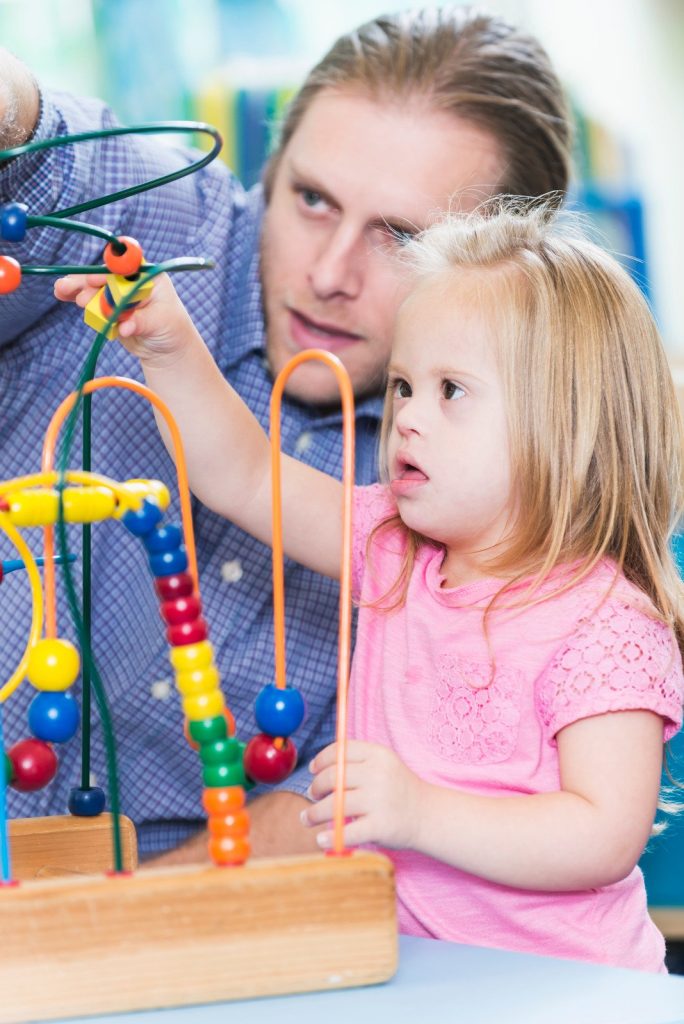
Behavior analysis principles and their application to real life is what we come to know nowadays as Applied Behavior Analysis (ABA).
ABA Therapy is effective in a wide variety of areas, including parent training, substance abuse treatment, dementia management, brain injury rehabilitation, and occupational safety intervention, among others (bacb.com)
However, the most widely recognized field in which ABA therapy is used is in the treatment of developmental disabilities such as Autism.
ABA has shown important improvements with individuals with disabilities in aspects such as functional communication, social skills, decreased harmful behaviors, learning new skills, and increased beneficial behaviors.
At Behavior Solutions Inc., the applied behavior experts in Florida, are deeply committed to utilizing the fundamentals and techniques that ABA therapy offers to help your child have all the tools he/she needs to be independent, successful, and happy.
ABA therapy utilizes a range of strategies based on the principles of operant conditioning.
These strategies are customized to meet the unique needs of each individual.
Reinforcement: Positive reinforcement is a key component in ABA therapy. When a desired behavior is followed by a reward, the likelihood of that behavior being repeated increases.
Prompting and Fading: Initially, prompts are used to encourage the desired behavior. Over time, these prompts are gradually faded to encourage independent behavior.
Shaping: This technique involves reinforcing successive approximations of a target behavior. It allows complex behaviors to be broken down into manageable steps.
Task Analysis: This involves breaking down complex tasks into smaller, more manageable components, making it easier to teach a sequence of behaviors.
ABA therapy begins with a comprehensive assessment conducted by a Board Certified Behavior Analyst (BCBA).
This assessment helps to identify the individual’s strengths, areas of need, and the environmental factors influencing behavior.
Based on this information, the BCBA designs a personalized treatment plan that outlines specific goals and the strategies to achieve them.
Initial Assessment
The initial assessment is crucial as it provides a baseline from which progress can be measured.
The Board Certified Behavior Analyst gathers data on your child’s skill levels, preferences, and any challenging behaviors.
Developing a Treatment Plan
Once the assessment is complete, the BCBA develops a treatment plan.
This plan includes specific, measurable goals, the strategies that will be used to achieve these goals, and the criteria for success.
Implementation and Data Collection
ABA therapy is typically delivered in a one-on-one setting.
The therapist implements the treatment plan, using various ABA techniques to teach new skills and modify behaviors.
Continuous data collection is a critical component of this process.
Data is collected during each session, allowing the BCBA to make data-driven decisions about the effectiveness of the intervention and make necessary adjustments.
Ongoing Monitoring and Evaluation
Regular monitoring and evaluation are integral to the success of ABA therapy.
The BCBA reviews the collected data to assess your child’s progress.
Based on this analysis, the BCBA may modify the treatment plan to better meet your child’s specific needs.
This iterative process ensures that the process remains effective.